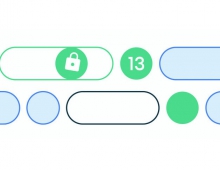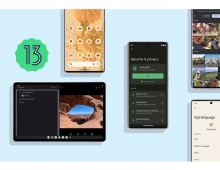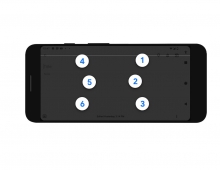
Android 11 Preview Unveils Privacy and Other Upgrades
Google on Wednesday provided some information about the next version of Android, the search giant's mobile operating system.
The software, called Android 11, is a preview version meant for app developers to test before it is released more widely.
Android 11 brings enhancements to the work profile, maning that IT can confidently extend the same privacy protections to a company-owned device that people have come to expect from the work profile on a personally-owned device.
For IT professionals, new asset management and device-level controls for the work profile can manage and restrict personal use to ensure company assets are compliant with corporate policies. Now in Android 11, IT will have additional control over what the employee can do on the personal side of the device, while not having visibility into how they choose to use the device within those admin-defined restrictions.
For example, IT can ensure employees can’t install video streaming apps that would consume large amounts of company-subsidized cellular data. On the other hand, IT will not have visibility into which of the permitted applications employees choose to install and use.
To enable this functionality as quickly and easily as possible, Android will automatically migrate work profile on fully managed devices to the improved work profile experience when devices upgrade to Android 11. Work profiles on fully managed devices will not be supported for either existing devices that upgrade to, or new activations on, Android 11. Other devices currently configured with work profiles are unaffected by these changes.
In Android 11, whenever your app requests a permission related to location, microphone, or camera, your app is granted a temporary one-time permission. With the new option, app makers will only get data until the user moves away from the app. After that, developers will have to ask for permission again.
Android 11 also includes changes to how apps can request background location permission from users. Apps that target Android 11 and need all-the-time access to location.
The new OS also brings support for “scoped storage,” which limits apps’ ability to look at storage outside of their own silo (similar to how the iPhone works). It was introduced last year with Android 10 but Google is implementing it more aggressively in 11. Users will apparently be able to opt apps in to broader access if they choose, however.
Other changes include upgrades for new form factors, including foldable phones and "pinhole" screens, which take up the entire front of the device except for the camera lens. The release also brings better awareness of 5G bandwidth and metering, support for SHAKEN/STIR call screen authentication, better low-latency video decoding for streaming game services like Stadia, better HEIF support, a new version of Google’s neural networks API, and more.
Android 11 also has improvements for messaging apps. Now users will be able to add images to notification replies. Chat bubbles can keep conversations in view while you're using other apps.
Google also says that the Android notification panel is getting a "dedicated conversations section in the notification shade." Google says users will be able to "instantly find their ongoing conversations with people in their favorite apps."
We should alse expect to see a lot more of the "Bubbles" API that debuted in Android 10 as a developer preview. The Bubbles API would shrink a messaging app down into a minimizable floating circle featuring your contact's face. This year, it seems to be out of the dev preview state and is ready for apps.
Android 11 will also recognize differing levels of biometric security and support securely storing personal IDs like drivers licenses. Google is also adding more system-level components to Project Mainline, allowing the company to update more parts of the system via Google Play instead of a full OS update.
Android 11 is also moving even more components into this new update system. Google says it "added 12 new modules, for a total of 20 updatable modules" in Android 11. Android 10 had 13 updatable modules, so Google's new count of 12 new modules and eight old modules makes it sound like a lot has happened.
Android 11 is also getting support for the "secure storage and retrieval of verifiable identification documents, such as ISO 18013-5 compliant Mobile Driving Licenses." This means that in the future, you'll be able to use a smartphone app for your government-issued ID instead of a piece of plastic.
Google will share more features for the software at its annual developer conference, Google I/O, in May.
Developers can download a system image of the Android 11 Developer Preview for Pixel 2, 3, 3a, and 4 now.





















